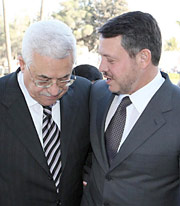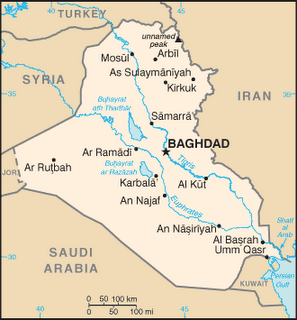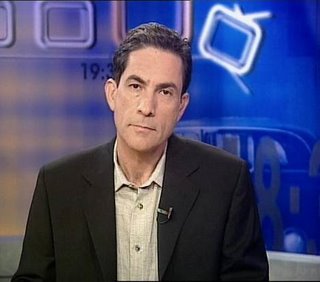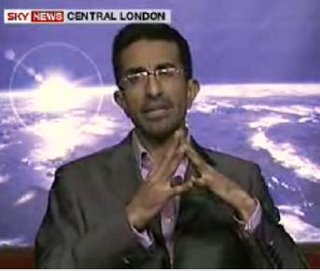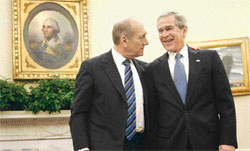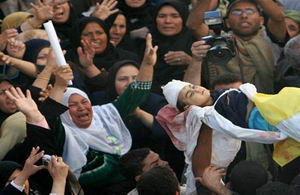Last Sunday (November 26, 2006), U.S. Senator Chuck Hagel (R-Nebraska) called on America to withdraw from Iraq on the Washington Post editorial page. Responding to calls by Senator John McCain (R-Arizona), among others, to increase troop levels in another bid to defeat the insurgency, Hagel writes that
The time for more U.S. troops in Iraq has passed. We do not have more troops to send and, even if we did, they would not bring a resolution to Iraq. Militaries are built to fight and win wars, not bind together failing nations. We are once again learning a very hard lesson in foreign affairs: America cannot impose a democracy on any nation -- regardless of our noble purpose.I would substitute "failed states" for "failing nations" and replace "Militaries are" with "The U.S. military is." But I am afraid that Hagel is right. There are currently more than 140,000 American armed forces personnel in Iraq, exposed to constant attack and seemingly impotent in the face of indiscriminate assaults by militias on Iraqi civilians. It is time to go. The question is how and where. Here, I think Hagel and other legislators who support a pullout are guilty of a certain myopia that could cost the U.S. dearly in the future. I was amazed, for example, by the following description:
It may take many years before there is a cohesive political center in Iraq. America's options on this point have always been limited. There will be a new center of gravity in the Middle East that will include Iraq. That process began over the past few days with the Syrians and Iraqis restoring diplomatic relations after 20 years of having no formal communication.Encouraging? Allow me to remove the rose-tinted glasses. Yes, regional powers will fill regional vacuums, which is precisely why America should be very scared. It astounds me that in Hagel's op-ed there is not a single reference to Iran - the regional power that has the most to gain from an American withdrawal, and the state with the grandest ambitions in the Gulf.
What does this tell us? It tells us that regional powers will fill regional vacuums, and they will move to work in their own self-interest -- without the United States. This is the most encouraging set of actions for the Middle East in years.
U.S. President Bush as well as Senator McCain continue to talk a great deal about al-Qaeda. One of the arguments against a withdrawal is that the resulting vacuum will provide a secure base for the terrorist group. These are legitimate concerns, but al-Qaeda is not a state, and its power pales in comparison to that of Iran. I suspect that the emphasis on al-Qaeda is designed mainly to appeal to American voters and, at the same time, to al-Maliki's government in Iraq, which sees the Sunni militias and al-Qaeda as its primary enemy.
Iran is already active in Iraq. For now, however, the Iranians are waiting for the Iraqi Shi'a to consolidate their hold on power. National Security Council Adviser Stephen Hadley's confidential memo (from November 8), printed in the New York Times today, acknowledges that Maliki's government, despite assurances or hopes to the contrary by the prime minister, is pursuing Shi'a hegemony rather than a partnership among Sunni, Shi'a, and Kurds:
Despite Maliki’s reassuring words, repeated reports from our commanders on the ground contributed to our concerns about Maliki’s government. Reports of nondelivery of services to Sunni areas, intervention by the prime minister’s office to stop military action against Shia targets and to encourage them against Sunni ones, removal of Iraq’s most effective commanders on a sectarian basis and efforts to ensure Shia majorities in all ministries — when combined with the escalation of Jaish al-Mahdi’s (JAM) [the Arabic name for the Mahdi Army] killings — all suggest a campaign to consolidate Shia power in Baghdad.Shi'a rule means Iranian influence, and let there be no doubt about it at that Iran sees Shi'a across the region as stepping stones to regional superpower status. It doesn't matter that not all the Iraqi Shi'a factions are actually pro-Iranian. If the Americans leave, Iran will either back its favorites or force other factions to toe its line. This scenario would present a very serious threat to vital American interests in the Gulf. Iraq's most productive oil fields are in areas of the country that are indisputably Shi'a. Iran could easily support Hizbullah-type forces there or pressure the Iraqi central government directly to put the squeeze on oil exports, should the need to confront the U.S. arise.
Furthermore, if Iraq becomes an Iranian satellite, U.S. allies such as Bahrain, which actually has an increasingly militant Shi'a majority (who, though in the opposition, scored a big victory in recent parliamentary elections), will be threatened. There is no doubt that the Sunni gulf states, led by Saudi Arabia, would do everything they can to undermine the extension of Iran's influence to their doorsteps - first by sponsoring Sunni fundamentalist proxies (who would have no qualms about attacking America), and eventually by going nuclear.
Unfortunately, it will not be easy to work against these Iranian efforts. Hopefully Bush has been talking seriously to the Saudis about some of these issues. Today, it is clear that Iran has captured the Arab street. Playing to the Arab masses with antisemitism and by fighting Israel through its proxies, the Iranian regime has earned the affection of millions of Sunni. Al-Qaeda, the vanguard of Sunni extremism, which is trying desperately to gain followers for its anti-Shi'a struggle among Sunni outside of Iraq, has fallen behind in this respect. It cannot compete with the powers afforded to a sovereign state, even a non-Arab one. Al-Qaeda's tactical attacks on symbols of U.S. power have been diminished by perceived Iranian strategic successes against
core American interests in the Persian Gulf and the Middle East. The enormous public approval that the Iranian regime enjoys, makes it hard for the Arab states to maneuver with the U.S. and against the Iranians, especially since many of these states are already teetering on the brink of collapse.
Is there no solution then? Some American policymakers are banking on a counter-coup in the form of a Saudi-sponsored "victory" for Islam or the Arabs on the Israeli-Palestinian front. This seems like a very risky investment, on both the supply and demand sides (supply: who knows whether the initiative will deliver the goods; demand: who knows if the Arab street will prove as satisfied by a solution as it is by news of blows against Israel).
To be sure, I am not advocating that the U.S. "stay the course." America must withdraw its troops from the shooting gallery that is Iraq. Rather, I think that the solution lies in withdrawals to well-situated, fortified bases in the south, that will be able to guard oil fields and prevent Iranian incursions on the one hand, and to Iraqi Kurdistan in the north on the other.

